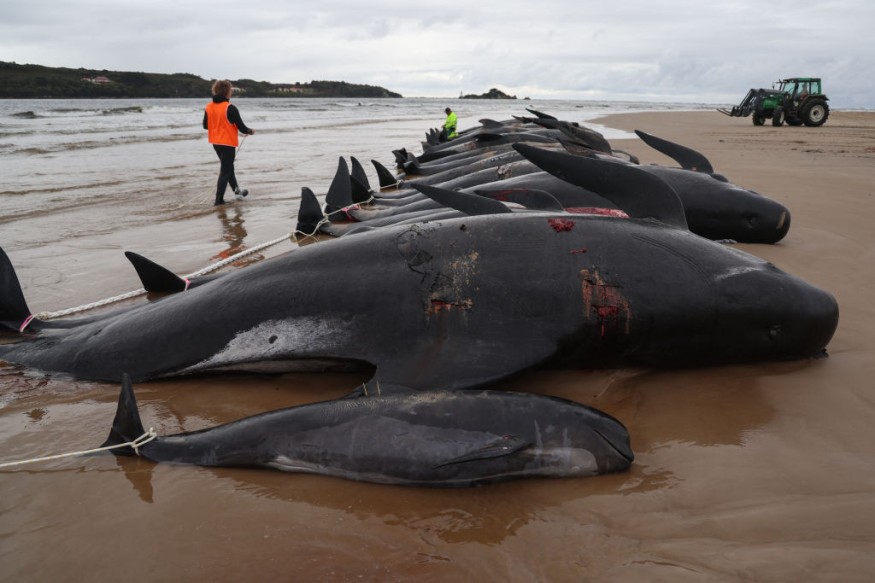Dozens of pilot whales became stranded on a remote beach along the western Australian coast, sparking a race against time for wildlife officials and volunteers.
The large-scale rescue operation, which unfolded over several days, involved a significant effort from multiple groups and resulted in the successful refloating of over 100 whales.
This event marks a significant improvement in outcomes for these often-deadly stranding events.
Rescue Teams Battle the Clock to Save Stranded Whales

The incident began when a pod of pilot whales was spotted struggling on a beach near Dunsborough, a coastal town in Western Australia.
Alerted by concerned onlookers, wildlife authorities were swiftly notified, and a rescue operation was immediately launched.
The stranding site's remoteness presented logistical challenges, making it difficult to transport necessary supplies and personnel to the location.
However, a dedicated team of wildlife officials, veterinarians, volunteers, and marine biologists quickly assembled at a nearby town.
Working tirelessly under the scorching sun and with limited resources, the rescue team prioritized the health of the beached whales. Many of the whales were dehydrated and suffering from sunburn.
Veterinarians assessed the health of each whale, administering fluids and medication as needed. Efforts then focused on refloating the whales, a complex process that involved moving the massive animals with slings and onto specially designed mats.
Thankfully, their intervention proved successful, with over 100 whales being refloated and guided back to sea. Rescue crews monitored the whales for signs of distress after their release, ensuring they were able to swim away safely.
According to reports, this wasn't the first time whales had become stranded in this area. In 1996, a similar event saw a mass stranding of 320 whales, with only a small fraction surviving.
This highlights the recurring nature of these stranding events and the need for ongoing research into the causes.
The Mystery of Whale Strandings
The reasons behind whale strandings remain elusive, and scientists continue to grapple with this complex phenomenon.
Several theories have been proposed to explain these events, including whales following a sick leader off course, sudden changes in water depth or temperature, or disorientation caused by man-made noises. In this particular case, the cause of the stranding event is undetermined.
However, some experts believe that the pod may have been startled by predators, causing them to navigate off course and become beached.
The successful rescue of over 100 whales on the western Australian coast offers a glimmer of hope.
While the cause of this particular stranding event remains undetermined, the dedication and expertise of the rescue team undoubtedly played a critical role in saving these magnificent creatures.
This event also highlights the importance of international collaboration and preparedness for future stranding events.
While the rescue efforts managed to save over 100 whales, the event wasn't without casualties. Sadly, reports indicate that 29 of the whales did not survive the stranding.
This underscores the need for further research into the causes of whale strandings and the development of improved rescue techniques.
© 2025 NatureWorldNews.com All rights reserved. Do not reproduce without permission.





